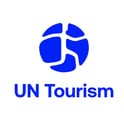UNWTO Launches Digital Futures Programme for SMEs
UNWTO has announced the launch of the Digital Futures Programme, designed to accelerate the adoption of new technology among tourism enterprises.


Developed in collaboration with some of the world’s leading technology, finance and business companies as Mastercard the initiative is focused on small and medium-sized enterprises (SMEs), which make up 80% of all tourism businesses. UNWTO aims to reach at least 1 million tourism SMEs over the lifetime of the Programme, providing them with the foundational skills and knowledge needed to harness the power of new and emerging technologies.
The Digital Futures Programme will help them to recover from the impacts of the pandemic and drive the sector forward, powered by innovation and new technology
UNWTO Secretary-General Zurab Pololikashvili says: “Small businesses are the backbone of tourism. The Digital Futures Programme will help them to recover from the impacts of the pandemic and drive the sector forward, powered by innovation and new technology.”
In order to provide SMEs with tailored guidance and and tools, the Programme is built on a Digital Readiness Diagnostic Tool that benchmarks SMEs across five key digital dimensions – Connectivity, Business Growth, E-Commerce, Big Data and Analytics, and Payments and Security. The launch event, held at IE Tower in Madrid, was attened by around 200 participants including the Ambassadors to Spain of UNWTO’s Member States, as well as invstement and promotion Agencies, and SMEs themselves.
RELATED LINKS
- UNWTO Digital Futures Programme
- Investments Strategy
- Launch Event of the UNWTO Digital Futures Programme
About UN Tourism
The World Tourism Organization (UN Tourism) is the United Nations agency responsible for the promotion of responsible, sustainable and universally accessible tourism.
As the leading international organization in the field of tourism, UN Tourism promotes tourism as a driver of economic growth, inclusive development and environmental sustainability and offers leadership and support to the sector in advancing knowledge and tourism policies worldwide.
Our Priorities
Mainstreaming tourism in the global agenda: Advocating the value of tourism as a driver of socio-economic growth and development, its inclusion as a priority in national and international policies and the need to create a level playing field for the sector to develop and prosper.
Promoting sustainable tourism development: Supporting sustainable tourism policies and practices: policies which make optimal use of environmental resources, respect the socio-cultural authenticity of host communities and provide socio-economic benefits for all.
Fostering knowledge, education and capacity building: Supporting countries to assess and address their needs in education and training, as well as providing networks for knowledge creation and exchange.
Improving tourism competitiveness: Improving UN Tourism Members' competitiveness through knowledge creation and exchange, human resources development and the promotion of excellence in areas such as policy planning, statistics and market trends, sustainable tourism development, marketing and promotion, product development and risk and crisis management.
Advancing tourism's contribution to poverty reduction and development: Maximizing the contribution of tourism to poverty reduction and achieving the SDGs by making tourism work as a tool for development and promoting the inclusion of tourism in the development agenda.
Building partnerships: Engaging with the private sector, regional and local tourism organizations, academia and research institutions, civil society and the UN system to build a more sustainable, responsible and competitive tourism sector.
Our Structure
Members: An intergovernmental organization, UN Tourism has 160 Member States, 6 Associate Members, 2 Observers and over 500 Affiliate Members.
Organs: The General Assembly is the supreme organ of the Organization. The Executive Council take all measures, in consultation with the Secretary-General, for the implementation of the decisions and recommendations of the General Assembly and reports to the Assembly.
Secretariat: UN Tourism headquarters are based in Madrid, Spain. The Secretariat is led by the Secretary-General and organized into departments covering issues such as sustainability, education, tourism trends and marketing, sustainable development, statistics and the Tourism Satellite Account (TSA), destination management, ethics and risk and crisis management. The Technical Cooperation and Silk Road Department carries out development projects in over 100 countries worldwide, while the Regional Departments for Africa, the Americas, Asia and the Pacific, Europe and the Middle East serve as the link between UN Tourism and its 160 Member States. The Affiliate Members Department represents UN Tourism's 500 plus Affiliate members.
